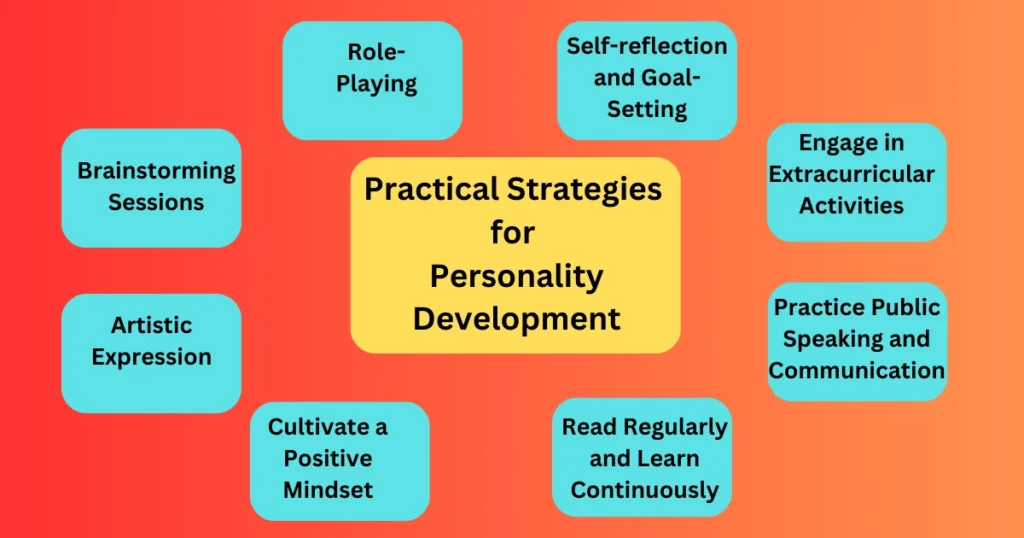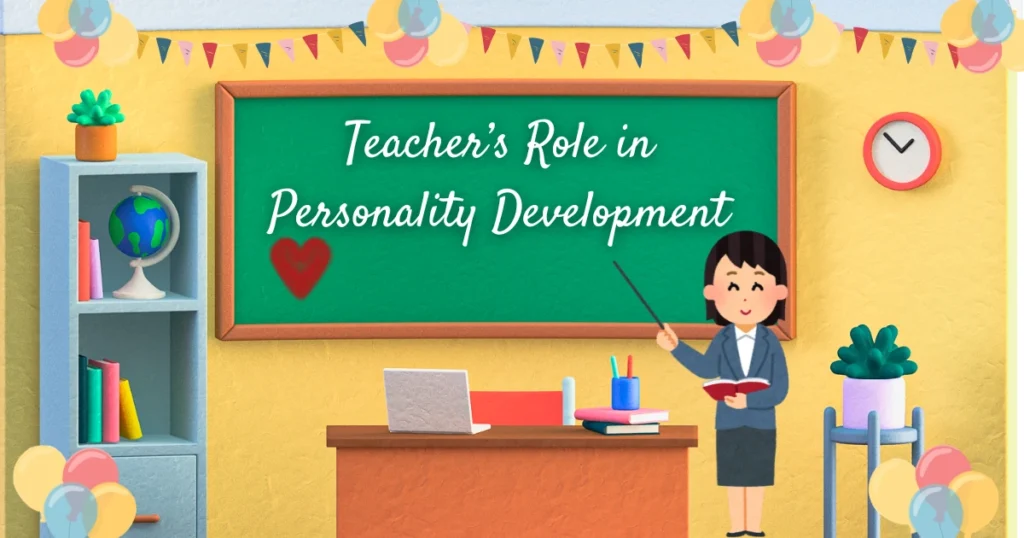Last updated on February 9th, 2026 at 08:06 am
In today’s increasingly competitive world, academic performance alone is no longer enough to guarantee. Personality Development for Students has become equally essential in shaping a student’s future. Personality development for students is the process of enhancing one’s behavior, attitude, communication skills, and emotional intelligence.
- Confidence, communication, and emotional intelligence are crucial for student success.
- Engaging in extracurricular activities and workshops enhances leadership and social skills.
- Self-reflection and goal-setting provide clarity and direction in the development journey.
- Emotional intelligence will be a top priority for employers in the coming years.
- Start your journey toward personality development today—your future self will thank you.
The Importance of Personality Development for Students
1. Boosts Self-Confidence
A developed personality instills confidence, which is vital in personal and professional settings.
According to a 2024 survey by the Global Education Forum, 78% of employers prioritize confidence during recruitment, making it a key factor for career growth. This confidence helps students believe in their abilities and tackle challenges effectively.
2. Enhances Communication Skills
Effective communication is vital in both academic and professional spheres. A well-developed personality helps students articulate their thoughts clearly and listen actively.
As Jim Rohn famously said, “Effective communication is 20% what you know and 80% how you feel about what you know.” Strong communication skills open doors to leadership roles, meaningful relationships, and successful career opportunities.
3. Cultivates Leadership Qualities
Students with refined personalities are often better equipped to inspire and lead others. Leadership qualities like decisiveness, empathy, and vision are essential in collaborative environments. This is especially valuable in group projects, extracurricular activities, and later in professional roles.
4. Improves Academic and Professional Prospects
A confident, articulate student is more likely to excel in interviews, group discussions, and public speaking engagements. Employers today highly value soft skills, including emotional intelligence, which helps students manage stress, adapt to new situations, and resolve conflicts effectively.
5. Encourages Social Adaptability
In today’s interconnected world, personality development helps students interact with peers from diverse backgrounds and adapt to varying social and cultural settings. Building this adaptability is crucial for personal and professional growth in multicultural environments.
6. Increase Emotional Intelligence
Emotional intelligence (EQ) enables students to understand and manage their emotions and empathize with others. Developing EQ helps students manage interpersonal relationships and resolve conflicts amicably, which is a valuable skill in academic settings and the workplace.
Practical Strategies for Personality Development

1. Self-reflection and Goal-Setting
Self-awareness is the first step toward improvement. Students should regularly reflect on their strengths and areas for growth. Setting SMART (Specific, Measurable, Achievable, Relevant, Time-bound) goals helps provide direction and track progress.
2. Engage in Extracurricular Activities
Extracurricular activities, such as sports, drama, music, or volunteering, provide opportunities to develop leadership, teamwork, and communication skills and encourage personal growth outside the academic environment.
3. Practice Public Speaking and Communication
Joining clubs like Toastmasters, participating in debates, or participating in school plays are excellent ways to boost public speaking skills. These activities enhance verbal communication and help students overcome stage fear.
4. Read Regularly and Learn Continuously
Reading books on personal development, leadership, and emotional intelligence, such as “The 7 Habits of Highly Effective People” by Stephen R. Covey, can provide valuable insights. Continuous learning through online courses, webinars, or workshops keeps students ahead in their personal development journey.
5. Cultivate a Positive Mindset
A positive mindset is crucial for overcoming obstacles and maintaining motivation. Practicing gratitude and surrounding oneself with supportive people can foster an optimistic outlook, which is essential for success in life and academics.
6. Build Strong Relationships and Network
Networking is not just for professionals; students can benefit greatly by building relationships with mentors, teachers, and peers. Strong social connections enhance interpersonal skills and provide support for personal and academic growth.
7. Artistic Expression
8. Brainstorming Sessions
9. Role-Playing
Simulating real-life scenarios through role-playing exercises helps students build adaptability and prepare for challenges they may encounter in both personal and professional settings.
Technology-Assisted Growth
- Modern tools can accelerate personality development. Here are some effective resources:
- Communication Apps: Platforms like Duolingo for language learning enhance communication skills by making learning engaging and interactive.
- Public Speaking Platforms: Organizations like Toastmasters provide structured environments for students to practice and refine their public speaking skills.
- Mindfulness Apps: Meditation apps can help students develop emotional regulation and reduce stress, contributing to better emotional intelligence.
Teacher’s Role in Personality Development
Educators play a vital role in supporting personality development by:
- Encouraging Active Participation: Creating opportunities for students to participate actively in discussions and activities fosters confidence and engagement.
- Providing Constructive Feedback: Feedback helps students identify areas for improvement and reinforces positive behaviors.
- Creating a Positive Learning Environment: A supportive atmosphere encourages students to express themselves freely and take risks in their personal growth journey.

Effective Activities for Personality Development
1. Workshops and Seminars
Attending workshops and seminars on emotional intelligence, leadership, or communication skills helps students gain expert insights and learn from professionals.
For example, workshops on Leadership through Emotional Intelligence are invaluable for developing essential skills.
2. Role-Playing and Simulations
Role-playing exercises, such as mock interviews or conflict resolution scenarios, provide students with the opportunity to practice problem-solving, decision-making, and empathy in real-life situations. These activities help students prepare for challenges they may face personally and professionally.
3. Group Discussions and Collaborative Projects
Engaging in group discussions or collaborating on projects fosters teamwork, communication, and critical thinking. These activities teach students how to navigate differing opinions and work toward common goals.
4. Volunteer Work
Volunteering in the community helps students build empathy, social responsibility, and collaboration skills. It also broadens their perspectives and encourages them to understand the challenges faced by others.
5. Journaling and Self-Assessment
Encouraging students to keep a journal allows them to track their thoughts, progress, and challenges. It promotes self-reflection, which is crucial for developing emotional intelligence and self-awareness.


